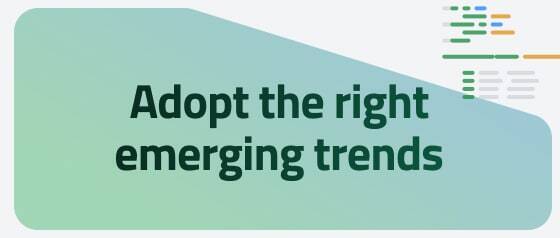InfoQ Homepage Culture & Methods Content on InfoQ
-
Applying Test-Driven Development in the Cloud
In the cloud, application development can be treated end-to-end with its accompanying infrastructure. This makes it possible to use test-driven development (TDD) and refactoring on the full application, which can bring down maintenance costs.
-
What Software Developers Can Do to Learn Effectively
Software developers are constantly learning new languages, frameworks, tools, and techniques. It can be challenging to decide which topic to learn, estimate our competence level, prevent becoming overwhelmed, and keep our learning effective. For better learning, break it down into realistically sized phases, and repeat the same topic several times to really get to experience it properly.
-
Adopting Artificial Intelligence: Things Leaders Need to Know
Artificial intelligence (AI) can help companies identify new opportunities and products, and stay ahead of the competition. Senior software managers should understand the basics of how this new technology works, why agility is important in developing AI products, and how to hire or train people for new roles.
-
How to Improve Testing by Using a Gentle Nudge
Nudging gives us opportunities to positively influence our behavior. Its principles can be applied in testing to increase attention or to enhance the product's quality. Nudging makes use of our biases. This term may cause concern for testers as it poses a risk to delivering useful software. However, scientists have also recognized its potential to positively influence our behavior.
-
How Open-Source Maintainers Can Deal with Toxic Behavior
Three toxic behaviors that open-source maintainers experience are entitlement, people venting their frustration, and outright attacks. Growing a thick skin and ignoring the behavior can lead to a negative spiral of angriness and sadness. Instead, we should call out the behavior and remind people that open source means collaboration and cooperation.
-
Late Architecture with Functional Programming
Many approaches to software architecture assume that the architecture is planned at the beginning. Unfortunately, architecture planned in this way is hard to change later. Functional programming can help achieve loose coupling to the point that advance planning can be kept to a minimum, and architectural decisions can be changed later.
-
QCon New York: Five Tracks to Level-up on the Latest Software Development Practices
The 2023 edition of the QCon New York (June 13-15) software development conference, hosted by InfoQ, is set to bring together over 800 senior software developers. The three-day conference will feature over 80 innovative senior software practitioners from early adopter companies sharing how they are solving current challenges, providing new ideas and perspectives across multiple domains.
-
What Engineers and Companies Can Do to Increase Social Impact
Engineers in the tech industry have the means for social impact through their network, skills, and experience. Companies can create impact by making business practices socially-minded. Inclusive training considers the circumstances and backgrounds of individuals, with minimum entry barriers to ensure broad participation, including ethnicity, gender, neurodiversity, and socio-economic background.
-
Leading in Hybrid and Remote Environments: Skills to Develop and Tools That Can Help
Leading in hybrid and remote environments requires that managers develop new skills like coaching, facilitation, and being able to do difficult conversations remotely. With digital tools, we can include less dominant and more reflective people to get wider reflections from different brains and personalities. This can result in more diverse and inclusive working environments.
-
Improving Web Accessibility with Semantic HTML and Testing Techniques and Tools
Web accessibility benefits all of us. Designers, developers, and testers can check for web accessibility and can make the web and services more inclusive, for instance by using semantic HTML, following web standards when coding, and testing for web accessibility. Countries are introducing regulations to enforce inclusive standards.
-
BBC’s Enablement Team Principles Focus on Openness, Collaboration, and Respect
At QCon London BBC shared the five enablement principles paving the road for their teams towards improved development and release processes. Steph Egan shared techniques, challenges and learnings from her team’s journey, with the major takeaway being that the principles have almost nothing to do with the tools themselves.
-
Learnings from Measuring Psychological Safety
Asking people how they feel about taking certain types of risks can give insight into the level of psychological safety and help uncover issues. Discussing the answers can strengthen the level of safety of more mature teams and help less mature teams to understand how they could improve.
-
Green Software Development - What Can You Do Now, and Where is the Industry Heading?
Making code more efficient often ends up saving carbon. Storing less information and compressing it can also lower your carbon footprint. There are open-source projects and standards and guides available that can be used to increase sustainability in software development. Measurement standardization is needed to compare the environmental impact of cloud suppliers.
-
Improving Developer Experience in Non-Technical Organisations with BMK
BMK has recently written about the challenges and DevEx compromises faced by engineers within traditionally non-technical enterprises. McKinsey Digital also recently published a report which asserts that every company is a software company. We report on BMK and McKinsey's recommendations for non-technical firms to improve their delivery by adopting safer software cultures.
-
Programming Foundations for Test Automation
Proper programming foundations can improve your test automation, making it easier to maintain testing code, and reduce stress. A foundation of the theory and basic principles of coding and programming can help to bring test automation to the next level. Object-oriented programming principles can help to overcome code smells.
QCon New York: Level-up on emerging software trends.
Don’t miss your opportunity to learn about key emerging software trends from senior software practitioners. Discover case studies, insights, real-world best practices and solutions in software development & tech leadership.

